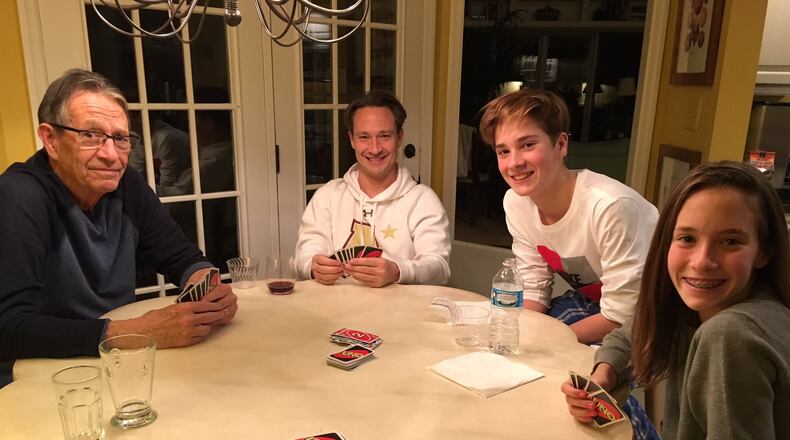So I agreed to try the new board game, he recruited his twin sister and their dad and we gathered at the kitchen table to play Codename, the rules of which are too complicated for me to understand, let alone explain. I proved to be so spectacularly inept at the game that at one point my granddaughter, who was my partner, complained that she’d rather have Rooney as her teammate. Which seemed a bit harsh to me, seeing as Rooney is one of their two dogs. And not necessarily the smarter one.
When I finally did catch on enough to at least make our team competitive, my son and his son snatched victory from our grasp by citing some highly questionable rules. Which led to them high-fiving each other and us calling them cheaters. Followed by lots of arguing, yelling and laughing.
More D.L.: You can just call me the Grandpa National Bank
But if the game was new to me, the experience was warmly familiar. It evoked memories of snowy mornings on the shag-carpeted floor of our family room with Candy Land or Chutes and Ladders. Sitting at the table around Sorry or Monopoly on afternoons too hot for playing outside. UNO marathons that lasted way past kids’ bedtimes.That was how we bonded; not sitting in the same room — together but alone — tapping, scrolling and swiping in solitary concentration.
The good news is that board games appear to be making a comeback. And that children benefit from them. According to one expert, “Linearly arranged board games have been shown to improve children’s spatial numerical understanding.” Another declared, “Research studies show that board games such as Chutes and Ladders result in children showing significant improvements in aspects of basic number skills such as counting, recognizing numbers, numerical estimation and number comprehension. They also practice fine motor skills each time they grasp a game piece. Playing board games has also been tied to improving children’s executive functions.”
D.L. STEWART: Trying to picture a painting that’s worth $110.5 million
I don’t know what all that means. I had no idea children even had executive functions. All I know for sure is that an afternoon of arguing, yelling and laughing probably was more beneficial to them than an afternoon of shooting, blasting and bombing.
And maybe even more fun for all of us.
Contact this columnist at dlstew_2000@yahoo.com.
About the Author

